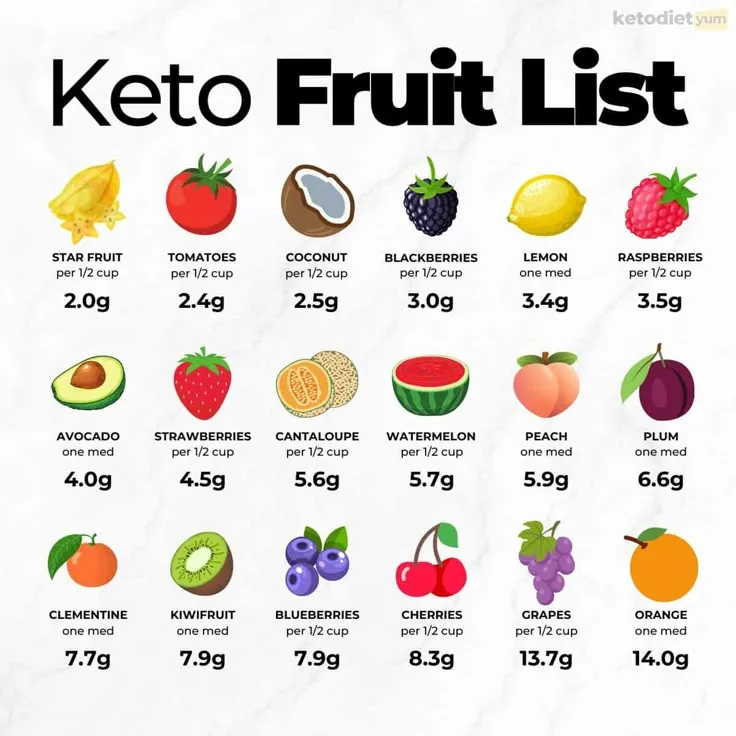
Following a ketogenic diet can be challenging, especially when it comes to incorporating fruits into your meal plan. Fruits are often high in sugar and carbohydrates, which can make them a tricky choice for those following a low-carb, high-fat diet. However, not all fruits are off-limits on a keto diet. In this article, we will explore which fruits are keto-friendly and won’t derail your diet.
The Basics of the Keto Diet
Before delving into keto-friendly fruits, it’s essential to understand the basics of the ketogenic diet. The keto diet is a low-carb, high-fat diet that has been shown to help with weight loss, improve metabolic health, and provide numerous health benefits. The primary goal of the keto diet is to enter a state of ketosis, where the body burns fat for fuel instead of carbohydrates.
What Makes a Fruit Keto-Friendly?
When it comes to choosing fruits on a keto diet, the key is to opt for fruits that are low in sugar and carbohydrates. Fruits that are high in fiber and have a lower glycemic index are generally better choices for those following a ketogenic diet. These fruits are less likely to spike blood sugar levels and are less likely to kick you out of ketosis.
Keto-Friendly Fruits to Enjoy
While some fruits are high in sugar and carbs, there are still plenty of options that you can enjoy on a keto diet. Here are some keto-friendly fruits that you can incorporate into your meal plan:
- Avocados: Avocados are a staple on the keto diet, as they are low in carbs and high in healthy fats.
- Berries: Berries such as strawberries, blueberries, and raspberries are lower in sugar compared to other fruits and can be enjoyed in moderation.
- Cantaloupe: Cantaloupe is a low-carb fruit that can satisfy your sweet cravings without derailing your diet.
- Coconut: Coconut is a versatile fruit that can be enjoyed fresh or in various forms like coconut oil or coconut milk.
Benefits of Keto-Friendly Fruits
Incorporating keto-friendly fruits into your diet can offer several benefits beyond just satisfying your sweet tooth. These fruits are rich in vitamins, minerals, and antioxidants that can support overall health and well-being. They can also provide a source of fiber, which is essential for digestive health and can help you feel fuller for longer.
How to Incorporate Keto-Friendly Fruits into Your Diet
There are many ways to incorporate keto-friendly fruits into your meal plan. You can enjoy them on their own as a snack, add them to salads or smoothies, or even use them in keto-friendly dessert recipes. Experimenting with different fruits and recipes can help keep your meals exciting and satisfying while staying on track with your keto goals.
FAQs About Keto-Friendly Fruits
Can I eat bananas on a keto diet?
Bananas are higher in sugar and carbohydrates compared to other keto-friendly fruits, so it’s best to enjoy them in moderation or opt for lower-carb options.
Are dried fruits keto-friendly?
Dried fruits are often higher in sugar and carbs due to the dehydration process, so it’s important to be mindful of portion sizes if you choose to include them in your keto diet.
Is it okay to eat fruit every day on a keto diet?
While fruits can be part of a balanced keto diet, it’s essential to moderate your intake and choose lower-carb options to avoid exceeding your daily carb limit.
Can I have fruit juice on a keto diet?
Fruit juice is typically high in sugar and lacks the fiber found in whole fruits, making it less ideal for a keto diet. It’s best to opt for whole fruits or low-carb alternatives.
What are the best fruits to avoid on a keto diet?
Fruits that are high in sugar and carbs, such as bananas, grapes, and mangos, are best avoided on a keto diet to stay in ketosis and maintain your carb intake within limits.